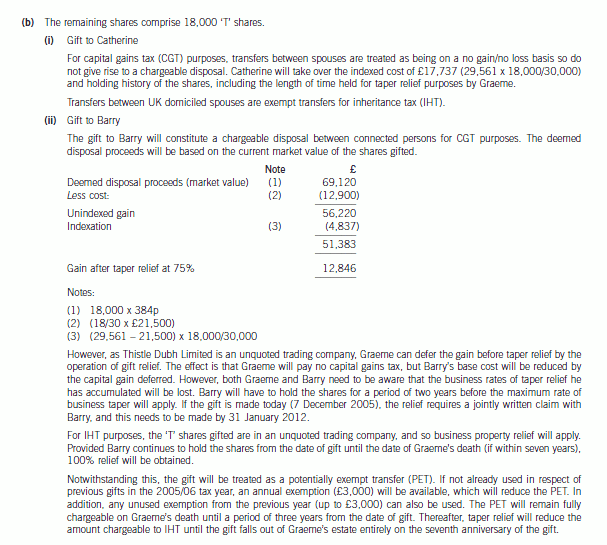2021年度ACCA考试报名条件已经更新,你真的不来看看?
发布时间:2021-01-16
相信很多考生对于ACCA考试报名条件还不很清楚,接下来就和51题库考试学习网一起去了解下ACCA考试报名条件的相关信息!
ACCA报考条件:
1.凡具有教育部承认的大专以上学历,即可报名成为ACCA的正式学员;
2.教育部认可的高等院校在校生,顺利完成大一的课程考试,即可报名成为ACCA的正式学员;
3.未符合1、2项报名资格的16周岁以上的申请者,也可以先申请参加FIA(Foundations in Accountancy)基础财务资格考试。在完成基础商业会计(FAB)、基础管理会计(FMA)、基础财务会计(FFA)3门课程,并完成ACCA基础职业模块,可获得ACCA商业会计师资格证书(Diploma in Accounting and Business),资格证书后可豁免ACCAF1-F3三门课程的考试,直接进入技能课程的考试。
ACCA考试科目:
ACCA考试科目共15科,分为四个大模块:知识模块(ACCA考试科目F1-F3)、技能模块(ACCA考试科目F4-F9)、核心模块(ACCA考试科目SBL&SBR)、选修模块(ACCA考试科目P4-P7)。
ACCA的科目设置如下:
第一部分为基础阶段,主要分为知识课程和技能课程两个部分。知识课程主要涉及财务会计和管理会计方面的核心知识,也为接下去进行技能阶段的详细学习搭建了一个平台。技能课程共有六门课程,广泛的涵盖了一名会计师所涉及的知识领域及必须掌握的技能。具体课程为:
1.知识课程FUNDAMENTALS--KNOWLEDGE
F1会计师与企业Accountant in Business(AB)
F2管理会计Management Accounting(MA)
F3财务会计Financial Accounting(FA)
2.技能课程FUNDAMENTALS—SKILLS
F4公司法与商法Corporate and Business Law(CL)
F5业绩管理Performance Management(PM)
F6税务Taxation(TX)
F7财务报告Financial Reporting(FR)
F8审计与认证业务Audit and Assurance(AA)
F9财务管理Financial Management(FM)
第二部分为专业阶段,主要分为核心课程和选修(四选二)课程。该阶段的课程相当于硕士阶段的课程难度,是对第一部分课程的引申和发展。该阶段课程引入了作为未来的高级会计师所必须的更高级的职业技能和知识技能。选修课程为从事高级管理咨询或顾问职业的学员,设计了解决更高级和更复杂的问题的技能。具体课程为:
3.职业核心课程PROFESSIONAL—ESSENTIALS
SBL战略商业领袖Strategic Business Leader
SBR战略商业报告Strategic Business Reporting
4.职业选修课程PROFESSIONAL--OPTIONS(四门任选二门)
P4高级财务管理Advanced Financial Management(AFM)
P5高级业绩管理Advanced Performance Management(APM)
P6高级税务Advanced Taxation(ATX)
P7高级审计与认证业务Advanced Audit and Assurance(AAA)
以上就是今天分享的全部内容了,希望能够帮到大家!51题库考试学习网在此预祝各位取得满意的成绩,如需了解更多相关内容,请关注51题库考试学习网!
下面小编为大家准备了 ACCA考试 的相关考题,供大家学习参考。
(b) Explain the capital gains tax (CGT) and inheritance tax (IHT) implications of Graeme gifting his remaining ‘T’
ordinary shares at their current value either:
(i) to his wife, Catherine; or
(ii) to his son, Barry.
Your answer should be supported by relevant calculations and clearly identify the availability and effect of
any reliefs (other than the CGT annual exemption) that might be used to reduce or defer any tax liabilities
arising. (9 marks)

(c) Assess Mr Hogg’s belief that employing child labour is ‘always ethically wrong’ from deontological and
teleological (consequentialist) ethical perspectives. (9 marks)
(c) Mr Hogg’s belief that employing child labour is ‘always ethically wrong’
Deontological perspective:
In the case scenario, Mr Hogg is demonstrating a deontological position on child labour by saying that it is ‘always’ wrong.
He is adopting an absolutist rather than a relativist or situational stance in arguing that there are no situations in which child
labour might be ethically acceptable. The deontological view is that an act is right or wrong in itself and does not depend
upon any other considerations (such as economic necessity or the extent of the child’s willingness to work). If child labour is
wrong in one situation, it follows that it is wrong in all situations because of the Kantian principle of generalisability (in the
categorical imperative). Because child labour is wrong and potentially exploitative in some situations, the deontological
position says that it must be assumed to be wrong in all situations. The fact that it may cause favourable outcomes in some
situations does not make it ethically right, because the deontological position is not situational and the quality of the outcome
is not taken into account.
Teleological perspective:
According to the teleological perspective, an act is right or wrong depending on the favourableness of the outcome. It is
sometimes called the consequentialist perspective because the consequences of the action are considered more important
than the act itself.
In the teleological perspective, ethics is situational and not absolute. Therefore child labour is morally justified if the outcome
is favourable. The economic support of a child’s family by provision of wages for family support might be considered to be a
favourable outcome that justifies child labour. There is an ethical trade-off between the importance of the family income from
child labour and the need to avoid exploitation and interfere with the child’s education. Education is clearly important but
family financial support might be a more favourable outcome, at least in the short term, and if so, this would justify the child
working rather than being in school. For HPC, child labour is likely to be cheaper than adult labour but will alienate European
buyers and be in breach of its code of ethics. Child labour may be ethically acceptable if the negative consequences can be
addressed and overcome.
[Tutorial note: other, equally relevant points made in evaluating Mr Hogg’s opinion will be valid. The texts discuss teleology
in terms of utilitarianism and egoism. Although this distinction is not relevant to the question, candidates should not be
penalised for introducing the distinction if the other points raised are relevant]
(iii) State the value added tax (VAT) and stamp duty (SD) issues arising as a result of inserting Bold plc as
a holding company and identify any planning actions that can be taken to defer or minimise these tax
costs. (4 marks)
You should assume that the corporation tax rates for the financial year 2005 and the income tax rates
and allowances for the tax year 2005/06 apply throughout this question.
(iii) Bold plc will be making a taxable supply of services, likely to exceed the VAT threshold. It should therefore consider
registering for VAT – either immediately on a voluntary basis, or when its cumulative taxable supplies in the previous
twelve months exceed £60,000.
As an alternative, the new group can apply for a group VAT registration. This will simplify its VAT administration as intragroup
transactions are broadly disregarded for VAT purposes, and only one VAT return is required for the group as a
whole.
Stamp duty normally applies at 0·5% on the consideration payable in respect of transactions in shares. However, an
exemption is available in the case of a takeover, reconstruction or amalgamation where there is no real change in
ownership, i.e. the new shareholdings mirror the old shareholdings, and the transaction is for commercial purposes. The
insertion of a new holding company over an existing company, as proposed here, would qualify for this exemption.
There is no VAT on transactions in shares.
声明:本文内容由互联网用户自发贡献自行上传,本网站不拥有所有权,未作人工编辑处理,也不承担相关法律责任。如果您发现有涉嫌版权的内容,欢迎发送邮件至:contact@51tk.com 进行举报,并提供相关证据,工作人员会在5个工作日内联系你,一经查实,本站将立刻删除涉嫌侵权内容。
- 2020-01-09
- 2021-04-25
- 2020-01-09
- 2020-02-26
- 2020-02-11
- 2020-01-09
- 2019-12-29
- 2020-01-10
- 2020-08-13
- 2020-05-01
- 2021-04-22
- 2020-02-27
- 2020-09-03
- 2020-01-09
- 2020-01-08
- 2020-09-03
- 2020-01-03
- 2020-04-10
- 2020-04-09
- 2021-01-13
- 2021-04-02
- 2021-04-09
- 2020-07-04
- 2021-01-22
- 2020-09-03
- 2021-04-24
- 2020-01-10
- 2020-01-08
- 2019-12-29
- 2020-02-21